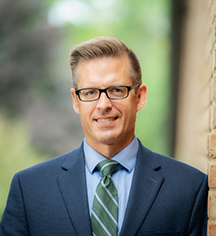It’s easy as church leaders to make assumptions about how the people entrusted to our care (both within our congregations and in our surrounding neighborhoods) experience their spiritual lives. But how often do we create intentional spaces to hear their stories? How are people connecting with God and making spiritual meaning? Where are they struggling or stuck in their spiritual lives? What are they yearning for?
Empathetic listening is itself an act of love. People within many congregations and their surrounding neighborhoods aren’t necessarily used to being listened to deeply, without judgment, by anyone–especially not the church. Josh Packard and Ashleigh Hope point out in their book Church Refugees that a primary reason people today cite for leaving congregations is a lack of participatory listening. These “dones” feel like the church and its leaders aren’t very interested in hearing what they’re going through and yearning for. Instead, institutional church agendas take precedence.
Many neighbors outside the church who would not respond well to institutional church-driven concerns (like “join our church so we can get new members”) might feel honored, respected, and valued if congregation members took the time simply to listen compassionately to their stories and struggles, with no other agenda.
Faith+Lead has developed a simple tool to help you do this listening. The Spiritual Life Listening Tool is designed to help your Christian community deepen its connections through compassionate listening to its own members or its surrounding neighbors. The tool is written for use with anyone–not just Christians. Its language is framed to meet people where they are and allow them to share as deeply as they feel comfortable about how they understand their spiritual or religious identity, where they feel spiritually alive, what practices are meaningful to them, and what they long for spiritually.
Start Small
A good place to begin is by trying it out with a small group of leaders within your church. Identify some people in your local church who are good listeners, generally open and curious, and have the trust of their peers. First, have them pair up and interview each other using the questions in the tool. While asking and answering these questions may not be what people are used to doing at church, these will likely be energizing and holy conversations.
From there, the questions can be used in one-one interviews or small group interviews either across the congregation or in the neighborhood. These need not be cold calls to strangers; church members can reach out to neighbors they (or the church) have some connection with already. Interviewers can capture general notes on what they hear (always respecting confidentiality and anonymity of particular interviewees’ stories and identities) and come together to share some of the primary themes that emerge. From this reflection, congregations can begin to get a better sense of the spiritual lives of their own community members and neighbors.
Here are a few quick tips for conducting these interviews:
- Be open and honest about the purpose of the conversation: it is to listen and learn more about people’s spiritual experience, perspectives, and journeys. That is the agenda, nothing more.
- Emphasize that there are no wrong or right answers, only honest ones.
- Approach the interviews prayerfully, with curiosity and openness to how God is at work in people’s lives. Resist the urge to correct, judge, or shame people.
- If you’re doing a group interview, make sure everyone has a chance to speak and that no one person dominates.
What if your church gained a reputation in its context for primarily being a church that listened deeply and compassionately to people’s spiritual lives? During a time when many people are leaving congregations and many neighbors are skeptical about the church, this simple act can go a long way to building bridges of credibility, trust, and love.




